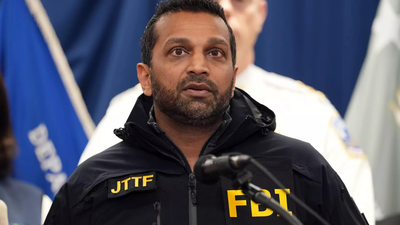FBI director Kash Patel sidestepped a crucial question on how DC shooting suspect Rahmanullah Lakanwal, an immigrant from Afghanistan who came to the US in 2021, was granted asylum by the Donald Trump administration in 2025. When Patel was asked whether the authorities missed any signs while granting asylum, Patel did not address the heart of the controversy that though Lakanwal was allowed to enter the US by the Biden administration but was granted asylum by the Trump administration. But he tactfully passed the buck on the previous administration. “Well, you miss all the signs when you do absolutely zero vetting – and that’s exactly what happened in this case,” Patel said. “When the prior administration made the decision to allow thousands of people in without doing a single piece of background checking in your vetting, that’s how you miss every single sign,” the FBI director said.
How asylum is granted in the US
People who can prove to the administration that they are being persecuted in their country can get asylum in the US within a year of arriving in the US. For individual cases, there is a strong vetting process in place but Lakanwal came to the US not as an individual but along with many who were welcomed to the US in 2021 under Joe Biden’s Operation Allies Welcome. This happened after the US military withdrew forces from Afghanistan and the government collapsed, giving in to the Taliban power. Over 70,000 Afghan nationals were allowed into the US under the program which was vetted by US counter-terrorism and intelligence agencies. But Republican leaders claimed that there was no background check as the evacuation was rushed. Under the Operation Allies Welcome program, Afghans evacuated to the US were granted a two-year “parole” that allowed them to live and work legally and then apply for a more permanent status. Lakanwal applied for asylum in December 2024 and was granted asylum in April this year. He had no known crminal historty and the government file of Lakanwal said he had been vetted by the US because of his work with US government partners during the war in Afghnistan.



